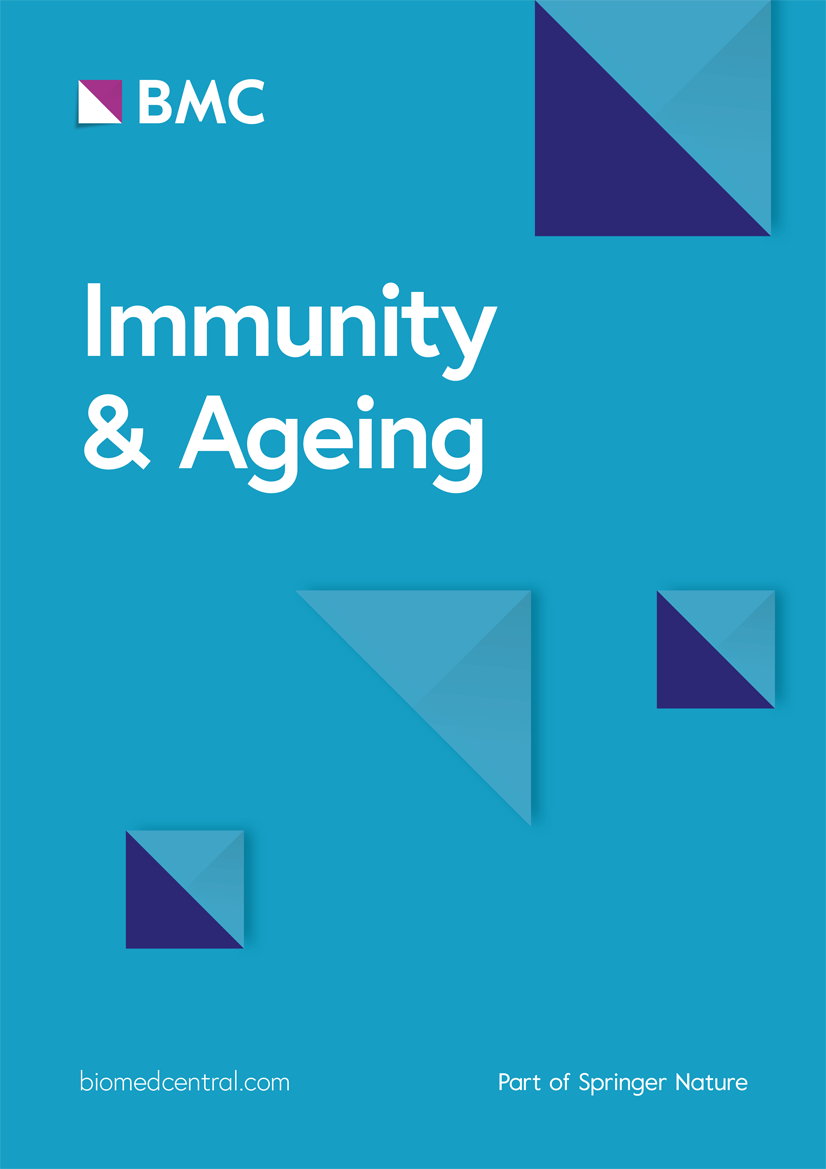
Melatonin, immune function and aging - Immunity & Ageing
Aging is associated with a decline in immune function (immunosenescence), a situation known to correlate with increased incidence of cancer, infectious and degenerative diseases. Innate, cellular and humoral immunity all exhibit increased deterioration with age. A decrease in functional...
The role of immunity as a predictor of individual longevity in human beings has been suggested by several studies like OCTO and NONA longitudinal studies and they all reveal the existence of "immunological risk phenotype", that can predict the life span in the elderly
Longitudinal studies (OCTO) suggest that the cluster of immune parameters like low CD4+ cells, an increase in CD8+ cells and a low IL-2 production are all predictive of mortality
NK cells play an important role in immunosurveillance against neoplasia and virus infected cells [97, 98]. IFN-gamma enhances NK cell activity [99]. An observation of potentially high prophylactic significance, was the demonstration that exogenous melatonin given acutely at 1800 h to young healthy males increased their responsiveness to IFN while the chronic administration of melatonin augmented the spontaneous NK cell activity and also the circulating number of NK cells [100]. The increased NK cell number brought about by melatonin administration was attributed partly to the increased production of cytokines by melatonin-stimulated T helper cells. IL-2, IL-6, IL-12 and IFN-gamma have all been suggested as the possible cytokines that mediate melatonin-induced increase of NK cell number [90]. T helper cells contain melatonin receptors that presumably mediate melatonin action in releasing cytokines [101–103].
Melatonin can correct immunodeficiencies secondary to acute stress, viral diseases and drug treatment. In immunodepressed conditions, the immunoenhancing action of melatonin seems to be restricted to T lymphocyes [129]. In conditions of immunodeficiency, as in other pathologies and the normal, melatonin appears to favour a Th1 lymphocyte response [108].
Since melatonin stimulates the production of glutathione [138] its immunoenhancing role may be partly due to its influence on the maintenance of intracellular glutathione level.












